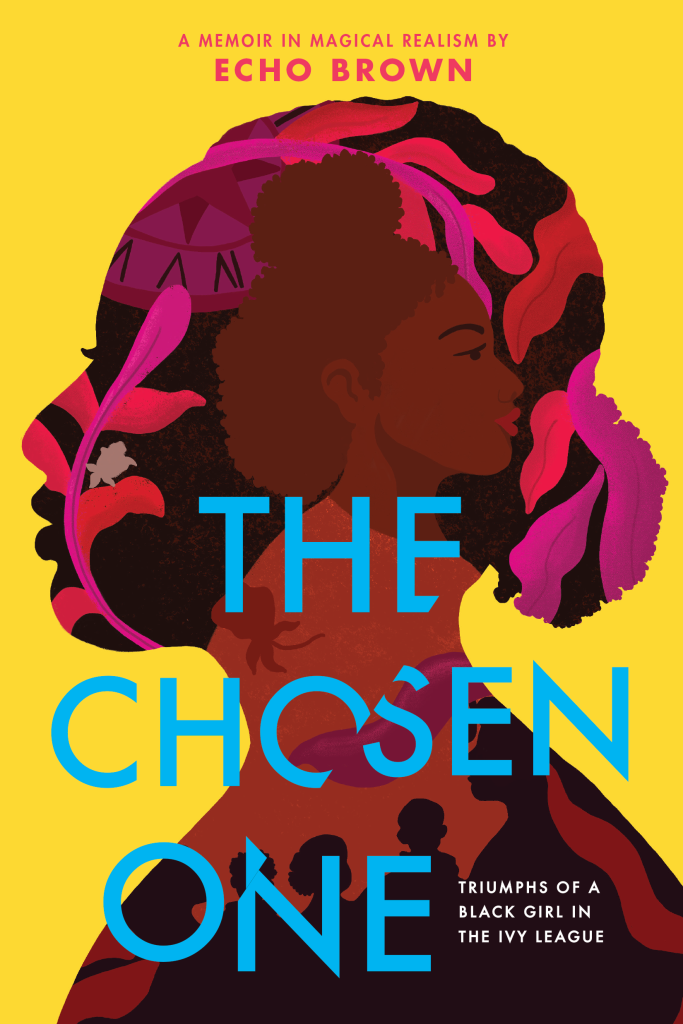If you’re one of the thousands of people entering their first year of college, we know you’re probably feeling a mix of emotions: that’s normal!
The great unknown is ahead of you, but you’ve got this. And if you need some stories and characters to give you advice and help you along, here are some we think you should bring to survive your first year.
If you’re excited about a fresh start and reinventing yourself…

Freshman Year
by Sarah Mai
One of the best things about going to college is the opportunity for a fresh start. The chance to shed yourself of anything that held you back in high school, and come into college as a new, confident version of yourself. That is what Sarah is looking forward to in August when she leaves Wisconsin suburbia for Minneapolis, Minnesota. The future is wide open, and Sarah knows exactly what she wants from it. She has freshman year all planned out which includes impressing her professors, keeping in touch with her friends and boyfriend at home, taking her art to the next level, and leaving behind her high school anxieties.
Her seemingly manageable plan proves to be more difficult than she anticipated. Freshman year just so happens to be a lot more stressful, isolating, and overwhelming than she ever imagined and her plans do not seem to be working out exactly how she imagined. Based on the authors personal experiences Sarahs realistic navigation of the first year of university is incredibly comforting. Though things may not initially be exactly how she thought, she realizes college is not always going to be perfect. Part of the experience is embracing the ups and downs of it all, and THAT is what makes it so special.
If you’re a first-generation college student…

The Chosen One
by Echo Brown
College is daunting no matter what, but when you are the first member of your family to ever attend, the pressure can feel immense. The Chosen One, is an incredibly powerful coming-of-age story that follows Echo, a freshman at Dartmouth University. Before leaving home she dreams of the campus to be a utopia of diversity, open minds, inclusivity, and even a preferable dating scene. As she settles in though, those dreams are quickly squandered as she struggles in the minority as a black first-generation student on campus, among a sea of affluent white students. Her grades and experiences in classes—something she always thrived in—are proving to be a stressor as well.
Despite these struggles, campus may just be a portal to different dimensions of time and space—only accessible if Echo accepts her calling as a Chosen One and takes charge of her future by healing her past. She embarks on a journey that requires vulnerability, humility, and conviction to ask for help without sacrificing self-worth. This book’s mesmerizing personal narrative paired with enchanting magical realism make it a must-read. This is a story all will find something to relate to, and if not, it provides an expansion of your world view before heading off to school. Because though this book is fiction, the struggles and complexities explored are things many students face every day.
If you have a gorgeous next-door neighbor…

To the Stars and Back
by Peglo
If you are planning on moving out for college, chances are your first year you will live in dorms or somewhere surrounded by new people. While some of them may blast music far past quiet hours, or potentially have unknown odors wafting from their door, there are so many incredible people that may be a door or few away! The forced proximity of your *good* neighbors may even come with something more romantic…
Bo Seon and Kang Dae are complete opposites, Kang Dae keeping to himself most of the time, and Bo Seon being a bubbly, outgoing, ray of sunshine type. While living next door they run into each other time and time again. They begin to grow closer and slowly realize they may have feelings for one another. Neither of them has been in a real relationship though and have real traumas to work through. Will these neighbors be able to work through their pasts and embrace what the future holds? You’ll have to read and see… and who knows you may end up sharing a wall with someone who makes your heart flutter too 😉
If you’re moving away from your high school sweetheart…

Hello, Goodbye, and Everything in Between
by Jennifer E. Smith
When you and your partner are moving in separate directions for school, it’s scary to think about what may happen in the future. If any of you are in that situation, I’m sure you and your partner have had conversations about what’s to come post grad. ORRR like Clare and Aidan you have left that conversation for the night before you leave for college. Well, in this book, that night has come. They need to decide… do they stay together or break up?
Though these kinds of decisions can feel so heartbreaking, take their advice: every ending is also a new beginning. Wherever you find yourselves in the next year, you’re only at the beginning of your next adventure. And if you need a good laugh, a good cry, or just straight up heartfelt wisdom, Hello, Goodbye, and Everything in Between is here for you. Oh! And it’s also a feature film on Netflix, so AFTER you finish reading you can have a watch party with your new friends at school. Because no matter the situation, leaving the people you love is hard, and everyone can benefit from this story to help them get through.
If you would major in true crime if you could…

A Beautiful and Terrible Murder
by Claire M. Andrews
Murder. Mystery. Sherlock Homes. Intrigued yet? And at the center of it we have Irene Adler, but in the prestigious halls of Oxford she is not known as her true self, rather a male alias: Isaac Holland. Keeping up her disguise gets trickier when students start dying, one by one. Determined to find out who’s responsible for the deaths, Irene—as Isaac—teams up with fellow classmate and roommate Sherlock Holmes to track down clues.
They face even more danger when someone tries to frame ‘Isaac’ for the very murders they are trying to track down. With this Irene’s father threatens to pull her out of school, and things begin to spiral. This book will take you through the lives of the elite and captivate your curiosity with the high-stakes murder mystery. For when you need a break from your real life, have this book on standby to get lost in the secret lies behind the glitz and glamor of the elite.
If you’re neurodiverse…

Rules for Camouflage
by Kirstin Cronn-Mills
The final month of high school. The moments leading up to the rest of your life. Evvie Chambers is doing her best to make it to the end, she’s so close she can almost taste it. That is until her teacher Mrs. Dearborn—who refuses to acknowledge or make any accommodations for her neurodiversity ruins her final project. Thankfully there is some respite from this high school hell: the Lair. The space for kids whose brains need some time away. Even this safe space is at risk when it becomes a target for bully, Vandal McDaniel, as he directs his harassment toward Lair members.
When a shocking act of violence pushes the whole mess over the edge, Evvie, with the help of her friends and the others who love her, will have to figure out how to find her place in the wide world, while remaining true to herself. This story shows the struggles many neurodiverse people face in being targeted whilst simultaneously ignored in their ask for help. Though there are people and systems that seem to stifle neurodiverse minds like Evvie’s, I am sure that you will rise above the struggles and come out the other end stronger. You got this.
If saying goodbye feels bittersweet…

The Summer of Us
by Cecilia Vinesse
It’s the final two weeks before summer and Aubrey is in Europe before she leaves for college. Though she spent the summer knowing this moment would come, she still feels nowhere near ready (normal feelings!!!). Thankfully she’s not spending these times alone. Her and her best friend Rae, have planned one last group trip across the continent. From Paris to Prague, they plan on trying the best foods, exploring every inch they can, sightseeing, and widening their horizons with their other friends Clara, Jonah, and Gabe.
Sadly, the carefree adventure they thought it would be comes to a screeching halt when old secrets come to light. And on top of that a gut-wrenching impractical crush is realized before everyone moves away… This story perfectly captivates the range of emotions that everyone goes through before leaving for college. If you are feeling like your emotions are too complex and scary before leaving for school, pick up this book for help understanding the bittersweet ache of learning to say goodbye to the past while embracing the future.
If you’re prone to existential crises…

Love & Other Carnivorous Plants
by Florence Gonsalves
Isn’t it exciting when all your plans for the future start to change 🙃🙃🙃? Carefully drawn-out plans might crumble on campus, or it might hit you that you haven’t planned enough and that everyone else is millions of miles ahead of you. Danny just began her freshman year, and as it turns out has not been the magical beginning she thought it would be. She continues to struggle and slowly but surely, she loses everything that makes up her identity.
When she finds herself in rehab for her eating disorder, she meets an older edgy girl who gives her a new sense of self… and a massive crush. Her self-destructive tendencies come back to haunt her as she struggles to rebuild herself and the identity she lost.
When tough times come around it’s easy to think that you’re going to feel lost all the time, but we promise it gets better! And in the meantime, you and Danny from Love & Other Carnivorous Plants might connect. We know that both of you can get through this!